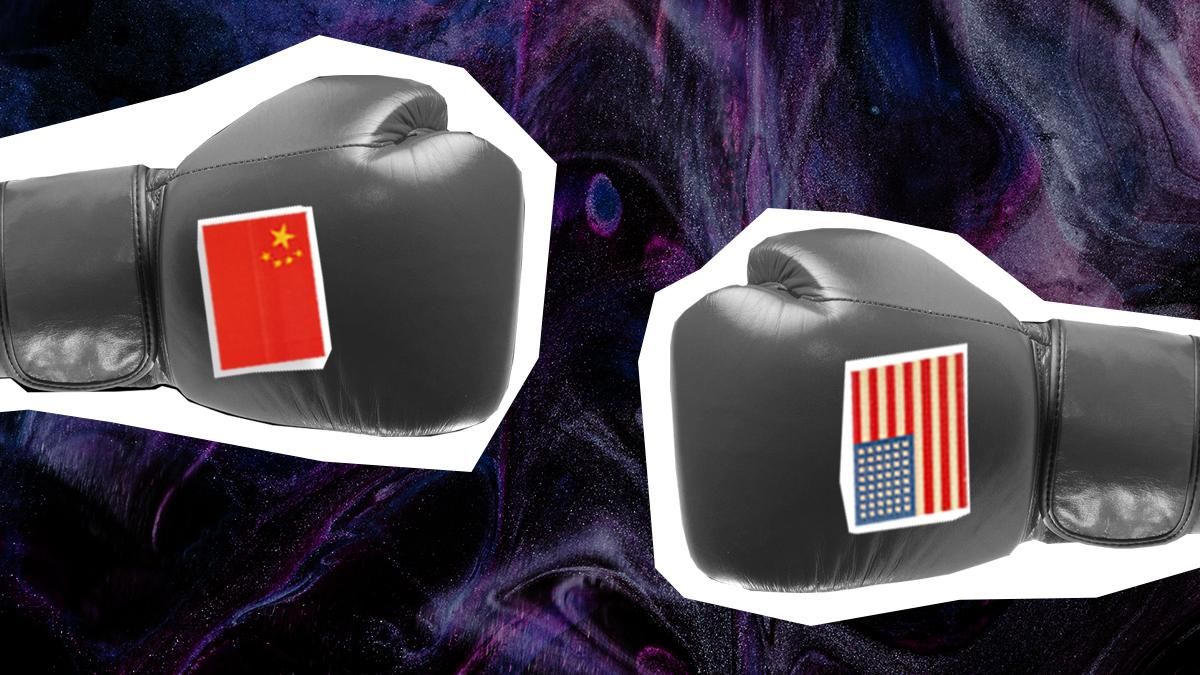What We’re Watching: US mulls China sanctions, Uzbek talks focus on ‘cooperation,’ US train strike averted
Will the US preemptively sanction China over Taiwan?
If you thought US-China ties couldn't get any icier, think again. Washington is reportedly mulling sanctions in a bid to deter Beijing from invading Taiwan — and nudging the EU to follow suit. No specifics yet, but the package would presumably target the Chinese military, which has upped the muscle-flexing ante near the self-ruled island since US House Speaker Nancy Pelosi visited Taipei in early August. Such a move would be similar to how the US and its allies warned Russia there would be a steep price to pay for invading Ukraine. Taiwan would welcome preemptive sanctions and has long called for the Americans and, more recently, the Europeans to do more to protect the island against Chinese aggression. But any sanctions would also rile Xi Jinping, who’s up for “reelection” next month and has vowed to reunite the island with the mainland before the 100th anniversary of the People's Republic in 2049 – by force, if necessary. While the White House has refused to comment, a sanctions plan could signal that US intelligence believes Xi might make a play for Taiwan sooner rather than later.
Cooperation at the Shanghai Cooperation Organization
This week, Uzbekistan will host the latest meeting of the Shanghai Cooperation Organization, a gathering of world leaders who present their club as an alternative to Western-led institutions, such as the G7 and NATO. There will be photos of powerful people like China’s Xi Jinping, Russia’s Vladimir Putin, India’s Narendra Modi, and Turkey’s Recep Tayyip Erdogan smiling and shaking hands, and in some ways, they can help one another. Xi can make a show of embracing Putin as Europeans and Americans work to isolate his government. Putin can offer Modi more oil at even more sharply discounted prices. Erdogan can back Putin’s bid to include Russian grain and fertilizer alongside permitted shipments of Ukrainian grain. Modi can reassure Xi that his security partnership with Washington remains limited. But behind the scenes, there is friction. Xi will talk up his friendship with Putin, but he won’t create bigger problems for China’s economy by openly ignoring Western sanctions on Russia. Just this week, Xi and Modi pulled troops back from their shared Himalayan border, but deadly hostilities between them could restart at any time. Putin and Erdogan remain on opposite sides of a shooting war between Armenia and Azerbaijan. In short, there’s plenty for these leaders to talk about, but this cooperation forum won’t sharply increase their actual cooperation.
US iron horse strike averted
Think you’re annoyed at all those work demands during your time off? Unions representing half of America’s organized freight rail workers were ready to go on strike this Friday unless they reached an agreement with rail companies that would, among other things, relax the requirement that they stay “on call” 24/7. The economic impact of a strike would have been huge as nearly 30% of US freight moves by rail. It also would have affected many passenger services and driven already-dizzying inflation rates even higher. But just in the nick of time, known “ferroequinologist” (that’s your word of the week — more below) Joe Biden announced a tentative deal early Thursday between unions and companies to stop the strike. It’s a big relief for the president, who didn’t want to clash with organized labor, an important Democratic constituency, by asking Congress to use its authority to impose an agreement on unions as Republicans wanted. What’s a ferroequinologist? From the Latin ferrum (iron) and equus (horse), it’s literally an enthusiast of “iron horses,” an early 20th-century term for trains. “Amtrak Joe” loves trains!
